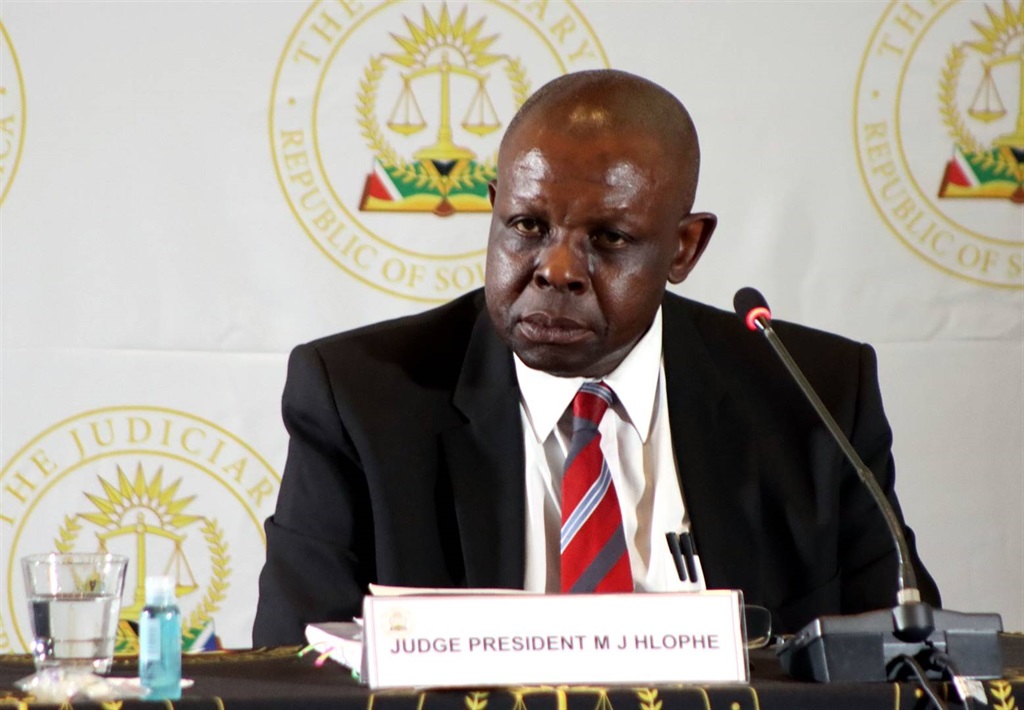
- It has been recommended that a tribunal investigate allegations made against Western Cape Deputy Judge President Patricia Goliath by her colleague, Judge Gayaat Salie-Hlophe.
- Salie-Hlophe claimed that Goliath attempted to influence her to lay false assault charges against her husband, Western Cape Judge President John Hlophe, that she encouraged her to divorce him and referred to him as an "old black man".
- This comes after Goliath lodged a complaint of gross misconduct against Salie-Hlophe and the judge president.
The Judicial Conduct Committee (JCC) has recommended that a tribunal investigate allegations against Western Cape Deputy Judge President Patricia Goliath.
This comes after her colleague, Judge Gayaat Salie-Hlophe claimed in a media statement, that she attempted to influence her to lay false assault charges against her husband, Judge President John Hlophe, as well as claims that Goliath encouraged her to divorce him and referred to him as an "old black man".
Her statement was made after Goliath lodged a gross misconduct complaint against Hlophe and Salie-Hlophe.
"If indeed the DJP made the alleged statements, particularly the act of urging Judge Salie-Hlophe to lay false criminal charges against the JP (judge president), it seems to me that that would prima facie be impeachable gross misconduct.
"Similarly, if Judge Salie-Hlophe falsely accused the DJP of having said these things, [t]hat too would be impeachable gross misconduct. These aspects of the complaint therefore fall to be investigated by a tribunal," the JCC said in its recommendation on Friday.
In Goliath's scathing misconduct complaint, she said judges were afraid of Salie-Hlophe.
"The allegations were that she had assumed 'enormous power' in the division, resulting in some of the judges being afraid of her and being disinclined to raise openly any issues relating to her; that she was (improperly) participating in the management of the court, the allocation of cases and appointment of acting judges; that she chose which judges she would sit with on appeals, and that her (unwarranted) complaints about certain judges to the judge president had resulted in strained relationships between the judge president and the judges concerned and the assault referred to in the preceding paragraph," the JCC said.
Goliath also alleged that Salie-Hlophe did not want to sit with some judges, which resulted in strained relationships between the judges.
She complained that Salie-Hlophe received preferential treatment and that some judges complained that she was allocated fewer appeals on a Friday than them.
In addition, she alleged that Salie-Hlophe worked irregular hours and sometimes took Fridays and Mondays off work with impunity.
In response to the complaint, Salie-Hlophe denied all allegations of her involvement in the administration of the court, including the allocation of cases to judges.
"The allegations describing her as a beneficiary of the [judge president's] preferential treatment (e.g. being allocated less work and taking days off work), were strongly rebuffed by both Judge Salie-Hlophe and the JP, with the JP stating that Judge Salie-Hlophe always performed her allocated work.
"According to him, reading from home was a practice enjoyed by other judges as well, and, as long as judges did their work, it was unnecessary to police the hours they spent at their workplace," the response said.
The committee dismissed the complaint against Salie-Hlophe.
An earlier version of this article incorrectly stated that the JCC recommended on Friday that the tribunal investigate allegations which Goliath made against Judge President John Hlophe and his wife. We apologise for the error.
Did you know you can comment on this article? Subscribe to News24 and add your voice to the conversation.

